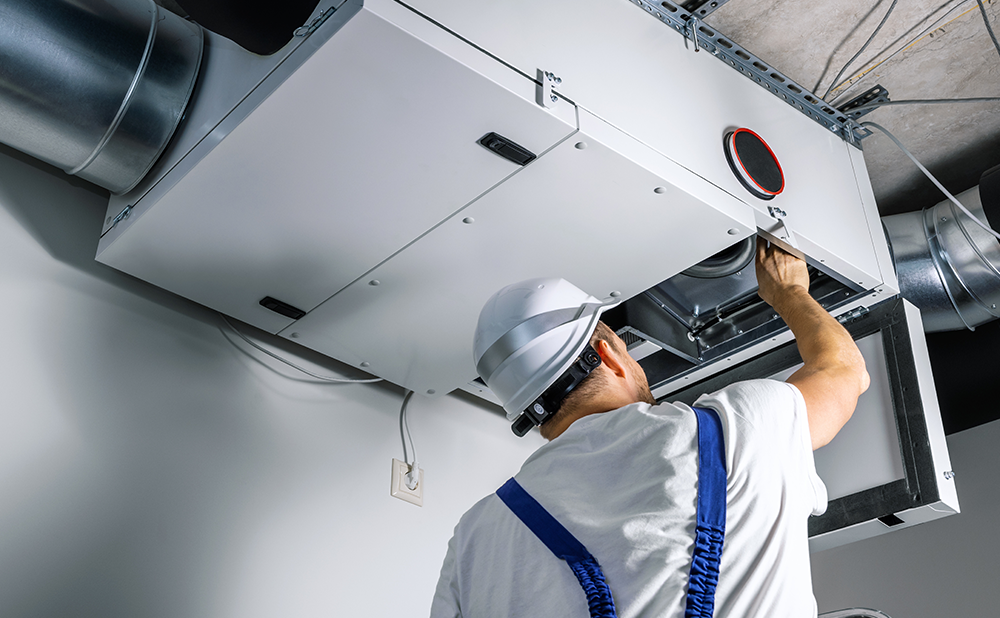
How should you proceed when you’re committed to purchasing a new home under contract, yet significant repairs are required? Don’t panic – there are options to facilitate the successful conclusion of the transaction between the buyer and seller, even when the home necessitates substantial improvements.
Here’s the situation:
After searching for what seems like an eternity, you’ve gotten your dream home under contract. The sales price is $300,000. After the home inspection, you’ve found the HVAC needs replacing. The mortgage lender won’t approve the file with the home in this condition.
The solutions available would be:
- The seller has the money and can pay for the work. Easiest and most common.
- The seller does not have the money and needs to pay for the repair costs out of the seller’s proceeds. Not all lenders do this, but we can at Homestead Financial Mortgage.
- The buyer has the money and can pay for the improvements. This will happen after closing. Not all lenders will allow this, but we do.
- The buyer does not have the money and needs to finance the improvements into the home loan. Again, not all lenders will allow this, but we do.
The Seller Has the Money and Can Pay
The most ideal solution is where the seller can pay for the repairs prior to close. By shouldering the responsibility for necessary repairs, the seller not only demonstrates a commitment to the satisfaction of the buyer but also helps streamline the overall process. This collaborative effort can contribute to a more positive and harmonious atmosphere during the contract period, potentially fostering a smoother and more successful closing. It is the most common and easiest resolution.
The Seller Does Not Have the Money
When the seller can’t pay for the repairs before closing, the lender can help escrow those funds, known as an escrow holdback, for use after the sale. An escrow holdback is a mechanism in real estate transactions where a portion of the sale proceeds is set aside in an escrow account to cover specific agreed-upon costs or repairs. This arrangement is typically made when unresolved issues with the property need attention after the sale closes.
In our example situation, you would get a bid to replace the HVAC and then hold back 150% of that amount at closing. The title company “Holds Back” funds from the seller until the work is completed. Let’s say a new HVAC costs $10,000 on a purchase contract of a new home for $300,000. The funds held at closing will be $15,000 ($10,000 x 1.5). The sellers owe $100,000 on their mortgage and should expect $200,000 at closing. In this case, the seller will receive $185,000 at closing.
The additional $15,000 is applied to the HVAC replacement. Any leftover funds will go to the seller after completion and appraisal of that completion. If the work costs $9,000, the seller gets an additional $6,000 after the HVAC is done.
Not all lenders allow for an escrow holdback. Many mortgage applications are turned down over this issue. Homestead Financial will do them on a case-by-case basis.
Buyer Has the Money
If the buyer doesn’t own the home yet, we don’t want the home improvements completed prior to closing. Doing work on a house before you close is never a good idea. However, in this seller’s market, many buyers are waiving inspections and agreeing to do the needed work themselves. If you will have a mortgage, you will need to escrow the funds at closing. The lender is responsible for ensuring the work is completed.
You may be able to use gift funds from a family member towards a home purchase for a down payment and possibly even repairs. Be sure to read about the tax implications involved and carefully discuss with your lender the best way to apply gift funds to your purchase.
Let’s use the same example as above: a $300,000 purchase price for a home that needs a new HVAC for $10,000. $15,000 will be added to the buyer’s funds due at closing. No matter the down payment amount, there will be $15,000 more to bring to closing for those repairs. The buyers will have the work done after closing – and the title company will facilitate payment to the contractor. If the repairs cost less than the amount put aside, the buyers will have that money returned to them upon completion. This money can only be used for items needing repair that would otherwise prevent the ability to close on a house.
Buyer Does Not Have the Money
If the seller will not pay for the necessary improvements but the buyer still wants the house and does not have the extra cash – financing can be available. Can you finance renovation costs into a mortgage? Yes, the buyer may be able to finance the improvements using a renovation mortgage. The two loan programs common in this market are FHA’s 203k and the Conventional Loan, Homestyle.
Renovation mortgages allow buyers to finance improvements or needed repairs. The buyer will need to obtain bids from acceptable contractors, and then we use the appraised value based on the “as completed” value of those improvements.
Renovation mortgages are more complex but possible. Contact us if you have questions about including the cost of renovations in your mortgage – we can help.
In conclusion, homes are more challenging to find in a seller’s market. Because of a lack of inventory, there is more competition for the ones available, and you need to be prepared if you find a home where the seller isn’t willing to contribute to the cost of any repairs needed. Higher rates might be in your favor if you’re currently shopping for a home. If you find a house that needs a small amount of work – don’t panic. Make sure you’re working with a lender familiar with how to handle these issues best.